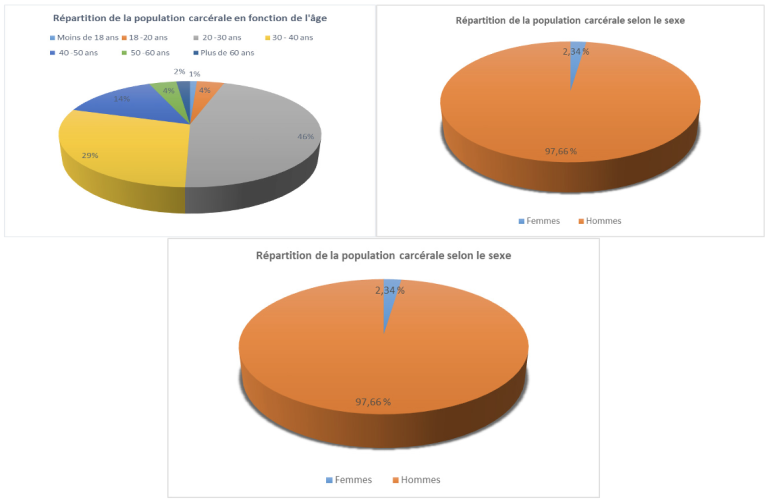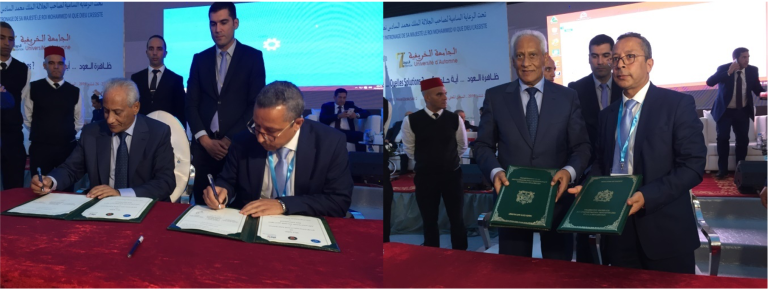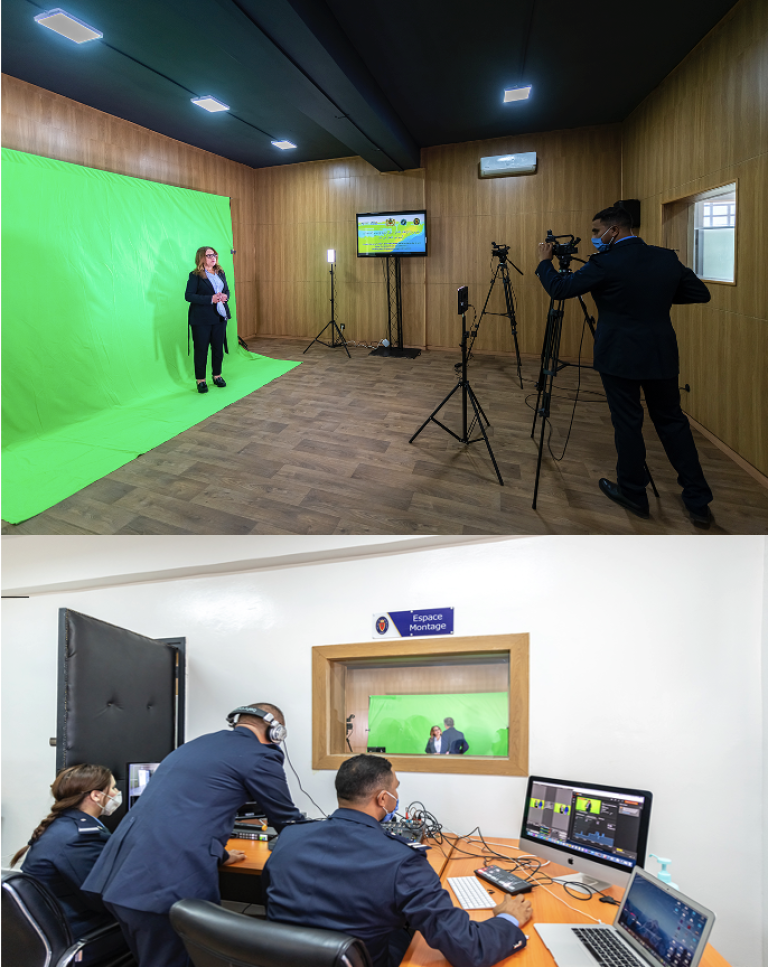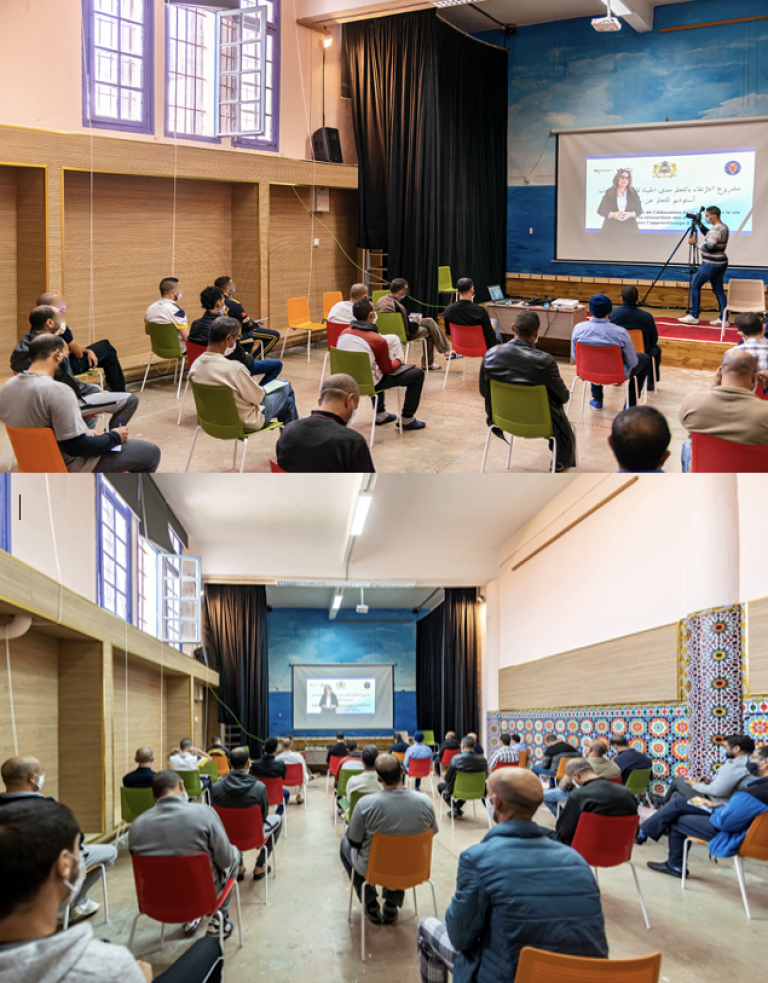Adult education in Morocco: the path to democratisation and social cohesion The Case of Penitentiaries
27 mars 2024 | Dr. Saïd Doukali. PhD | DVV International Morocco Education in Prisons Education rights

“Opening a school today means closing a prison in twenty years.” (Victor Hugo)
“We can only judge the degree of civilization of a nation by visiting its prisons.” (Fyodor Dostoyevsky)
Introduction
Following the example of other state departments in the Kingdom of Morocco, the penitentiary administration has undergone, in the last two decades, a profound reform of its legal and institutional framework. The law n° 23-98 relating to the organization of the penitentiaries, which came into force in 1999, marked a qualitative leap in penitentiary management by consecrating the fundamental rights of the prisoners. This was concretised by the creation in 2002 of the Mohammed VI Foundation for the Reinsertion of Prisoners and the General Delegation for Prison Administration and Reinsertion (DGAPR) in 2008.
From a strategic perspective of reintegration and social cohesion, the prison environment is no longer defined only as a place only for the execution of sentences, but also as a second chance school, where education and training are vectors for prisoners’ acquisition of behaviours and skills that will allow them to reintegrate into both society and the labour market.
Education and training as pillars of socio-economic reintegration of prisoners
In order to allow these two vectors, namely education and training, their full socio-professional effectiveness, in 2002 and 2003 the Mohammed VI Foundation for the Rehabilitation of Prisoners and the Prison Administration set up vocational training centres, which are true education centres.
To prevent incarceration from being a factor in dropping out of school, partnerships with the ministerial departments in charge of literacy and non-formal education and national education, as well as with higher education actors, have made it possible to bring schools and universities into the penitentiaries.


Adult education in correctional facilities by the numbers: Data on prisons in Morocco
- 77 Prisons nationally
- 2 central prisons for people with long sentences
- 65 local jails for people on remand or with short sentences
- 3 reform, education and social reintegration centres for minors and persons under 20 years old
- 7 agricultural prisons whose main objective is professional training in the agricultural field
- Total number of prisoners: 86,384 (as of 2019)
- Persons in pre-trial detention: 33,689
- Convicted: 52,695
- Juvenile detainees: 1,088
- Foreign prisoners: 1,256
- Inmates with disabilities: 261
- Sentenced to death: 72

Data on education and training in prisons
Over twenty years, more than 50,000 inmates have benefited from the education programmes, of which more than 5,000 have obtained certificates of completion. In 2018-2019, there were 4,636 beneficiaries, compared to 1,325 in 1999-2000, a 250% increase. In 1999-2000 the prisons in Morocco had only scattered training workshops, with only 6 courses and 557 beneficiaries. By 2018-2019, 60 training centres had been created with 37 courses and over 7,000 beneficiaries.
At the university level, the number of inmates enrolled increased from 140 in 1999-2000 to 938 in 2018-2019, an increase of 570%. Between 1999-2000 and 2018-2019, the number of literacy programme beneficiaries increased by 413%. This is due in large part to the creation of the ‘Prisons Without Illiteracy’ Programme set up by the DGAPR in 2016-2017, in partnership with the Ministry of Habous and Islamic Affairs and the National Agency Against Illiteracy (ANLCA). That same year, nearly 7,000 candidates took the exams and the success rate exceeded 83%.
DVV international's contribution to the adult education process in prisons: REFLECT approach in prisons
The cooperation between DVV International and the prison administration began in 2010. A one-year literacy programme using the REFLECT (Regenerated Freirean Literacy through Empowering Community Technique) approach was proposed at the Tangier prison.
Cooperation agreement between DVV International and the General Delegation for Prison Administration and Reinsertion (DGAPR).
DVV International's commitment to promoting adult education and lifelong learning within prisons was concretised in 2020-2022 by the signing of an agreement of cooperation, with the DGAPR. The agreement was officially signed during the 7th Autumn University (25-26 September 2019) at the Salé 2 local prison.

The implementation of the convention called for two innovative fields of intervention:
- 1st field: The implementation of instruments and mechanisms for lifelong learning using new information technologies.
- 2nd field: The socio-economic and cultural integration of foreign prisoners, through the learning of dialect, Moroccan culture, and the management of income-generating activities.
Training of trainers and facilitators
As part of the 2nd field of intervention, in 2019, DVV International organized training sessions for trainers in the field of andragogy and animation techniques for 72 prisoners in the prisons of Tetouan, Casablanca and Agadir. However, the programme for learning the Moroccan dialect and culture with foreign prisoners was not implemented because of the COVID 19 pandemic.
A studio within the prison to promote distance education
The COVID 19 crisis demonstrated that distance learning using innovative technologies is something that has to be considered for use in general education, and adult education in particular. Thus, in 2020, DVV International and DGAPR agreed to create a professional studio at the local prison of Salé City for recording and posting information about courses and activities of the inmates. According to several specialists, and given the legal and judicial restrictions within prisons, this instrument will be of paramount importance to ensure the right to lifelong learning for all prisoners in the future.



